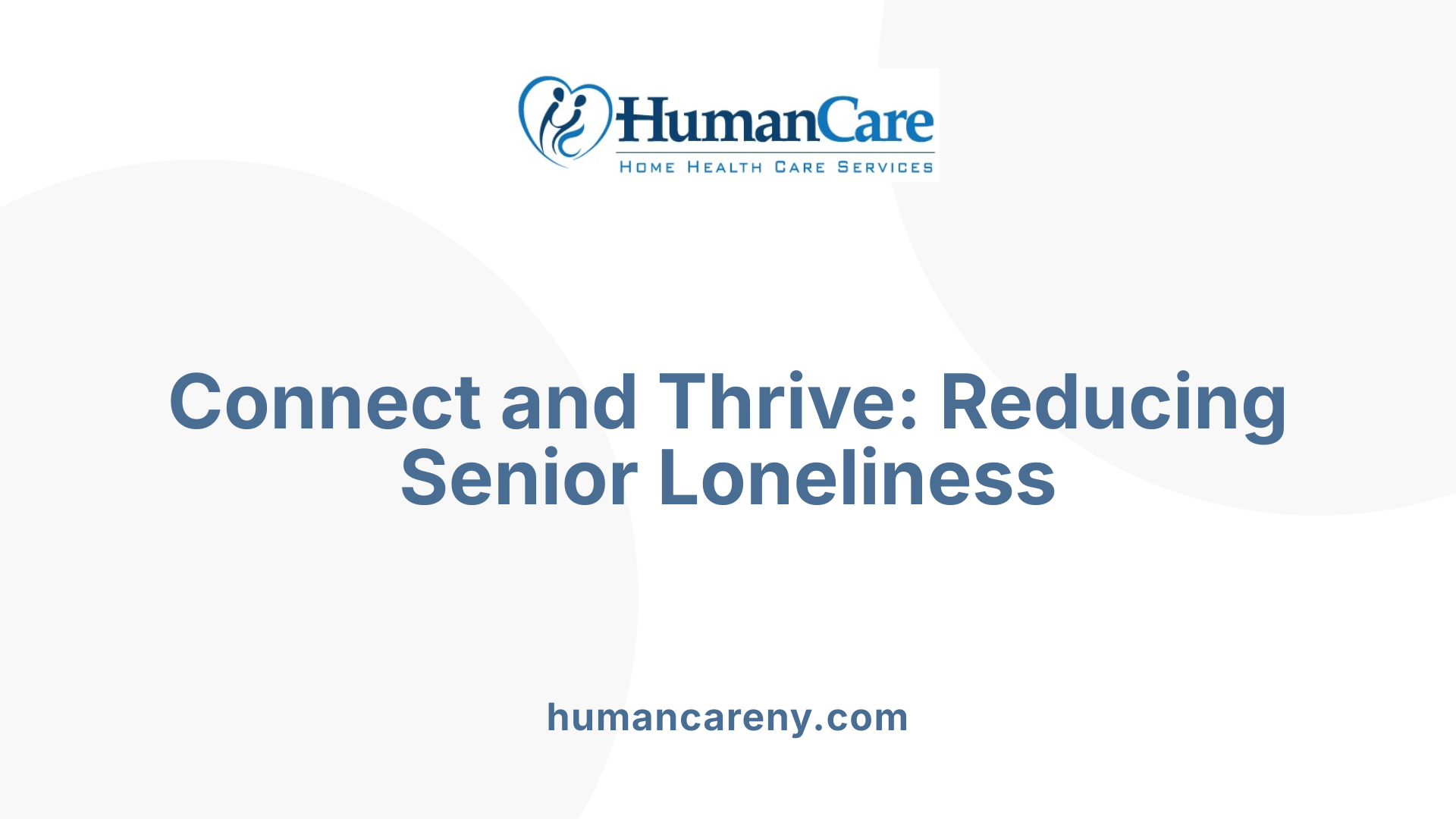Understanding Companion Care and Its Impact on Seniors
Companion care is a specialized in-home service designed to support seniors by providing non-medical assistance that focuses on emotional support, socialization, and light daily tasks. Unlike medical or hands-on personal care, companion care centers on fostering meaningful interactions and engagement that improve seniors' mental, emotional, and physical well-being. This article explores how companion care services enhance seniors' quality of life by reducing loneliness, encouraging activity, and maintaining independence, helping them stay connected with family and their communities while aging in place comfortably and safely.
Combatting Loneliness Through Meaningful Social Interaction

How does companion care help reduce senior loneliness?
Companion caregivers play a crucial role in reducing loneliness among seniors by providing regular social interaction and emotional support. Through routine visits, engaging conversations, and participation in activities such as hobbies, appointments, and outings, these caregivers help seniors look forward to meaningful interactions. This companionship addresses feelings of isolation, especially for those living alone or with limited mobility, fostering a sense of connection and belonging.
What mental health benefits result from companionship?
Companionship offers substantial mental health benefits for seniors, improving their emotional well-being and outlook on life. By lowering loneliness, it can reduce the risk of depression and cognitive decline. Regular social engagement facilitated by caregivers also helps decrease stress and blood pressure, promoting overall mental and physical health.
Importance of regular visits and interactions
Consistent interaction through scheduled visits ensures seniors maintain social connections and remain mentally stimulated. Caregivers encourage participation in social activities and new skills, such as using technology to connect with loved ones, which helps build trust and emotional bonds. These regular engagements contribute to a senior's sense of purpose, happiness, and improved quality of life.
Trust and emotional bonds formed between caregivers and seniors
Companion caregivers develop meaningful, trusting relationships by understanding seniors personally and tailoring support to individual preferences. This emotional connection enhances mental well-being, combats loneliness, and offers seniors a reliable source of companionship and encouragement.
| Aspect | Role in Reducing Loneliness | Benefit to Seniors |
|---|---|---|
| Regular visits & interactions | Provide routine social contact | Decreased isolation and increased joy |
| Emotional support | Offer meaningful conversation and understanding | Improved mental health and reduced depression |
| Activity engagement | Encourage hobbies and social outings | Stimulates cognition and promotes happiness |
| Trust-building | Tailor care to individual preferences | Strengthens emotional bonds and sense of security |
Personalized Support That Encourages Engagement and Independence

How is companion care tailored to individual seniors?
Companion care services are thoughtfully customized to align with each senior's unique interests, health status, and cognitive abilities. Care plans take into account personal preferences and any mobility limitations or memory conditions, such as dementia. This personalization ensures that the companionship provided is meaningful and resonates with the senior's lifestyle, fostering trust and emotional bonding that boosts mental well-being.
In what ways does companion care promote independence?
Companion caregivers assist seniors with light daily tasks including meal preparation, transportation, shopping, and running errands. These supports enable seniors to manage daily routines confidently while maintaining autonomy. Beyond practical help, caregivers encourage seniors to engage in hobbies, community events, and new skills like using social media or video calling, which stimulate the mind and strengthen social connections.
Support for Hobbies and New Skills
Engagement in stimulating activities such as playing games, gardening, or art and craft projects is facilitated by caregivers. They also guide seniors in adopting new technologies, helping them stay connected with loved ones and participate in modern social platforms.
Encouraging Community Participation
Caregivers help seniors access community gatherings, worship services, and social outings, fostering a sense of belonging and combating loneliness. This ongoing involvement not only enhances emotional health but also nurtures independence and a positive outlook on life.
Wide-Ranging Activities That Stimulate Mind and Body

What types of activities do companion caregivers facilitate?
Companion caregivers engage seniors in a variety of stimulating activities tailored to their interests and abilities. Popular options include playing board games and reading, which help maintain cognitive function. Music and dance sessions uplift mood and encourage movement, while art and craft promote creativity and dexterity. Gardening offers physical activity combined with sensory engagement. Additionally, caregivers organize outings to social events or community activities, enhancing social interaction.
How do companion caregivers help seniors stay connected using technology?
To maintain vital social connections, caregivers assist seniors with technology such as video calls and social media platforms. They provide guidance on using smartphones or tablets, enabling seniors to communicate regularly with family and friends. This use of technology helps reduce feelings of isolation and keeps seniors engaged with their loved ones despite physical distance.
Benefits of mental stimulation and physical activity
Engagement in these activities supports mental health by reducing loneliness, depression, and cognitive decline. Physical activities, including light exercises and gardening, improve mobility and overall well-being. Together, mental stimulation and physical movement enhance seniors’ quality of life by fostering a sense of purpose and joy.
Adaptations for mobility limitations or memory conditions
Companion care programs adapt activities to accommodate seniors with limited mobility or memory challenges such as dementia. For example, seated exercises and simplified games are used to ensure participation. Therapies like reminiscence sessions and pet therapy also provide comfort and cognitive benefits suited to varying needs.
| Activity Type | Purpose | Adaptation Examples |
|---|---|---|
| Board games | Cognitive stimulation, socialization | Simplified rules for cognitive impairments |
| Music & dance | Emotional uplift, physical activity | Seated dance or rhythm activities |
| Gardening | Physical exercise, sensory engagement | Container gardening for limited mobility |
| Virtual calls | Maintaining family connections | Technology assistance and step-by-step guidance |
| Arts & crafts | Creativity and dexterity | Use of easy-to-handle materials |
| Outings | Social participation | Transportation assistance and shorter trips |
Supporting Families and Ensuring Safety with Compassionate Care

How does companion care support family members?
Companion caregivers play a vital role in supporting families by providing consistent supervision and monitoring of seniors' well-being. They recognize subtle changes in health or behavior and promptly communicate these observations to family members. This ongoing reporting offers families peace of mind, knowing their loved ones are being attentively cared for even when they cannot be present.
What safety and flexibility benefits does companion care provide?
Companion care delivers flexible, personalized support tailored to seniors living alone or with limited mobility. Unlike full-time medical care, it focuses on non-medical assistance like meal preparation, medication reminders, and transportation to social events. This ensures seniors stay safely engaged in their homes longer. Caregivers are trained to notice emergencies or risks and act immediately, enhancing the senior’s safety.
Collaboration with reputable home care agencies for trustworthy care
Families benefit greatly from partnering with reputable agencies that provide compassionate, professional caregivers. These agencies conduct assessments to align care plans with the senior's unique needs. Through this collaboration, families receive reliable, trustworthy care services that enhance seniors’ quality of life while offering reassurance about their safety and wellbeing.
Providing flexible support for seniors living alone or with limited mobility
Companion care adapts to individual situations, offering help as needed without overwhelming seniors with unnecessary assistance. This balanced approach promotes independence while ensuring help and engagement are readily available, increasing both safety and quality of life for seniors aging in place.
Companion Care’s Role in Enhancing Overall Senior Quality of Life

How does companion care improve seniors' physical health?
Companion care promotes physical health by encouraging regular social interaction and light physical activity. Caregivers assist seniors with gentle exercises, walks, and transportation to social events, which help reduce stress and lower blood pressure. These activities contribute to better heart health and overall physical well-being, enabling seniors to maintain their independence longer.
What emotional benefits enhance seniors' quality of life through companion care?
Emotional support is a cornerstone of companion care. Through meaningful relationships and tailored engagement, caregivers foster a sense of joy, purpose, and belonging. This emotional connection helps lower feelings of loneliness and depression while improving mental health and life satisfaction.
Encouraging an active lifestyle and community involvement
Caregivers support seniors in participating in hobbies, community outings, and worship services. They also facilitate the use of technology for connecting virtually with loved ones. These activities keep seniors mentally stimulated, socially engaged, and physically active, enriching their daily lives.
Cost aspects and funding options supporting accessibility
The average cost for companion care in the U.S. is about $30 per hour, or roughly $5,700 per month, making it a flexible option for many families. Funding sources like state programs, including the Community Care Program (CCP), help seniors access these services when full-time medical care is not required. Partnering with reputable agencies ensures personalized, compassionate care tailored to each individual’s needs.
| Aspect | Description | Benefits for Seniors |
|---|---|---|
| Physical Health | Light exercises, social interaction, transportation | Reduced stress, lower blood pressure, improved mobility |
| Emotional Support | Meaningful relationships, emotional companionship | Enhanced mental well-being and reduced loneliness |
| Active Lifestyle | Participation in hobbies, community events, technology usage | Increased engagement and stimulation |
| Cost & Funding | Average cost $30/hr; state-funded programs like CCP | Makes care more accessible, flexible for families |
The Lasting Impact of Companion Care on Senior Well-Being
Companion care provides a vital lifeline for seniors seeking to maintain their independence, social connections, and emotional health while aging in place. Through personalized support, meaningful social interaction, engaging activities, and compassionate assistance, companion caregivers enhance the quality of life for older adults. These services not only alleviate loneliness and promote mental and physical wellness but also offer families peace of mind. As our aging population grows, companion care stands out as a compassionate, flexible, and effective solution to support seniors' holistic well-being.
References
- How Companion Care Stimulates Socialization For Seniors
- The Value of Companion Care for Seniors
- How Companion Care Can Help Combat Senior Isolation ...
- Companionship for Seniors: Enhancing Quality of Life at ...
- The Vital Role of Elderly Companion Care in Enhancing ...
- Building Relationships with the Help of Companion Care at ...
- What Is Companion Care for Seniors?



